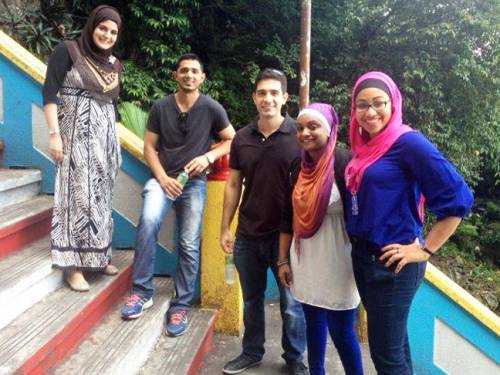
I'm one of those multi-combo-minorities. Muslim, mocha and female-in-a-male-dominated-industry.
Yes, I don't like being pigeonholed by my origin, gender or religion.
Yet, at the same time, those characteristics are a proud part of my identity and who I am.
Should the aspects of our identity that we pride ourselves on be hidden away due to a misguided need for political correctness?
***
Renee Brack's piece last month commented on an interesting tension that is seemingly felt by some in society: the difficulty in navigating the line between acknowledging a person's diversity and 'not wanting to draw attention' to it.
Brack reflected on a time in the past where things like race and sexuality were ignored, overlooked or used as a basis for inferior treatment. She then questioned whether the political correctness that is acceptable today - where race, origin and so on are not openly referenced - is harking back to the 'bad old days'.
"We’re caught between recognising and acknowledging origins, nationality and lifestyle choices but paradoxically, we don’t want to be politically incorrect by defining people by them.
Observing the right etiquette can seem like a painful strait jacket causing more stress than solutions. But the upside of it is that it streamlines respectful, ethical treatment of people in social situations.
Doesn’t it?" She asked, in a punchy and thought provoking piece.
The key point here is the difference between acknowledging and recognising something, versus defining people by that very same thing. It is a nuance that perhaps we haven't fully bedded down yet, particularly with things that seem unfamiliar or different.
“We have ...made you nations and tribes so that you would recognize each other.” (49:13)
Recognising an individual or group's diverse characteristics as a statement of fact is not offensive in of itself. It is when we begin to discriminate, define people by or dehumanise those based on a single aspect of their identity does it become dangerous. It can also be threatening if it feels like only a single facet of one’s identity is being judged, which can lead to insult.
The sentiment that as a society we should not focus on simple, one dimensional features as a way of stereotyping is sensible and civilised. Yes, there is a space for political correctness, but there is also a space for celebration of diversity that isn't superficial, token or uncomfortable.
Ultimately, we need to better understand each other. We need to be able to have meaningful dialogue about difference and to be comfortable recognising but not defining by diversity.
The 'how' is easier said than done. How do we move away from the discomfort in dealing with those who are different?
Talking about and exploring diversity and difference openly is a start.
This enables us to learn about each other and enriches our understanding of the fabric of our society. By having a deeper, more human understanding of those around us, the fear of the unknown is diluted and we begin to see those who are different as fellow humans rather than a one dimensional stereotype.
There is also a sense of 'wanting to do the right thing' by those that are diverse and different in our society. Yet, one of the pitfalls of defining people by a characteristic of difference is the tendency to speak for them and decide what is best for their sensibilities...
I for one, a Muslim, Sudanese born, female engineer – an identity ripe for stereotyping and pigeonholing. However, I don’t feel the need to be ‘protected’ or politically corrected. I am proud to be referred by them and would find it strange if they were overlooked completely. However, they are not the only aspects of my identity and to define me only by those would be disingenuous.
It should be noted though, that this may not be how everyone feels. So rather than make an assumption, sometimes, the best thing to do is simply to ask.
But for me? Go ahead, introduce me by my place of birth or choice of belief. But I’ll be darned if I fit into any expectation you have of what I should be.
How’s that for diversity?
***
Happy new year and lots of love!














 Defining ‘Australia in the Asian Century’ has been the subject of some debate since the release of the Federal Government’s White Paper in October last year. But how much do we know about the neighbourhood we are calling our own?
Defining ‘Australia in the Asian Century’ has been the subject of some debate since the release of the Federal Government’s White Paper in October last year. But how much do we know about the neighbourhood we are calling our own?



